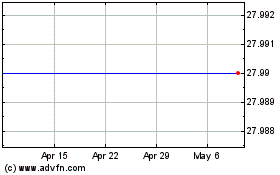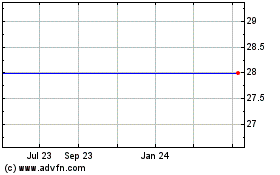Providers Still Struggling to Optimize Revenue Cycle-Related EHR Functions, Address Consumer Self-Pay
November 28 2018 - 8:00AM
Business Wire
Navigant survey conducted by HFMA also suggests hospital and
health system executives expect more moderate IT investments to
improve revenue cycle performance
Providers continue to focus on technology to drive revenue cycle
improvements but remain challenged with optimizing electronic
health record (EHR) functionality and addressing consumer self-pay,
a Navigant (NYSE: NCI) analysis based on a survey conducted by
Healthcare Financial Management Association (HFMA) suggests.
Revenue cycle IT budgets, EHR trends
According to the survey of 107 hospital and health system chief
financial officers and revenue cycle executives, 68% said their
revenue cycle technology budgets will increase over the next year,
down from 74% last year.
Results also show that, compared to last year:
- 39% fewer executives project a budget
increase of 5% or more
- 53% more executives predict no change
to their budgets
This slowing of IT spending does not mean providers are
satisfied with their current EHR functionality.
Fifty-six percent of executives said their organizations can’t
keep up with EHR upgrades or underuse available EHR functions, up
from 51% last year.
Moreover, 56% of executives suggested EHR adoption challenges
have been equal to or outweighed benefits specific to their
organization’s revenue cycle performance. Both hospital-based
executives and those from smaller hospitals cited more challenges
than benefits, compared to health system and larger hospital
executives. This is likely due to greater capacity and scale in
health system and larger hospital IT departments.
“Hospitals and health systems have invested a significant amount
of time and money into their EHRs, but the technology’s complexity
is preventing them from realizing an immediate return on their
investments,” said Timothy Kinney, managing director at Navigant.
“When optimized correctly, a good portion of the ROI can come from
EHR-related revenue cycle process improvements.”
Consumer self-pay trends
While providers appear to be better prepared to address consumer
self-pay, the area continues to be an issue.
Eighty-one percent of executives believe the increase in
consumer responsibility for costs will continue to affect their
organizations, down from 92% last year. Among them, 22% think that
impact will be significant, compared to 40% last year. Executives
from health systems and larger hospitals believe their
organizations will be more heavily impacted by consumer
self-pay.
“The impact of consumer self-pay on providers will only increase
with the popularity of high-deductible health plans and negative
changes to the economy,” said Navigant Managing Director James
McHugh. “Providers must take advantage of opportunities to more
holistically educate patients on out-of-pocket costs, predict their
propensity to pay as early as possible, and secure alternative
payers or financing when needed.”
Revenue cycle IT trends
When asked which revenue cycle capability their organization is
most focused on for improvement over the next year, most executives
(76%) once again selected technology-related capabilities. Revenue
integrity continues to be the top area of focus among them, cited
by 24% of executives who noted such revenue integrity program
benefits as reduced compliance risks, and increased revenue capture
and net collection. Survey results also show that, compared to last
year, EHR optimization as an improvement priority rose from 15% to
21%, while physician documentation fell from 18% to 12%.
View full survey results at www.navigant.com/RCMInsights.
Navigant’s Healthcare segment is comprised of consultants,
former provider administrators, clinicians, and other experts with
decades of strategy, operational/clinical consulting, managed
services, revenue cycle management, and outsourcing experience.
Professionals collaborate with hospitals and health systems,
physician enterprises, payers, government, and life sciences
entities, providing strategic, performance improvement, and
business process management solutions that help them meet quality
and financial goals.
About Navigant
Navigant Consulting, Inc. (NYSE: NCI) is a specialized, global
professional services firm that helps clients take control of their
future. Navigant’s professionals apply deep industry knowledge,
substantive technical expertise, and an enterprising approach to
help clients build, manage, and/or protect their business
interests. With a focus on markets and clients facing
transformational change and significant regulatory or legal
pressures, the firm primarily serves clients in the healthcare,
energy, and financial services industries. Across a range of
advisory, consulting, outsourcing, and technology/analytics
services, Navigant’s practitioners bring sharp insight that
pinpoints opportunities and delivers powerful results. More
information about Navigant can be found at navigant.com.
View source
version on businesswire.com: https://www.businesswire.com/news/home/20181128005093/en/
Kyle BlandNavigant Investor
Relations312.573.5624kyle.bland@navigant.comAlven
WeilNavigant704.995.5607alven.weil@navigant.com
Navigant Consulting (NYSE:NCI)
Historical Stock Chart
From Mar 2024 to Apr 2024

Navigant Consulting (NYSE:NCI)
Historical Stock Chart
From Apr 2023 to Apr 2024
